hello.
i think a lot of us are haunted by a version of happiness that never actually belonged to us. there’s not a single moment when it all collapses and you realize you’ve been living someone else’s life. it’s slower than that. it’s a continuous spiral of waking up in the morning realizing you can’t remember what you used to want.
before the job, before the new lease, before the carefully managed calendar, before all of that, there was a younger version of you who felt things more clearly. not because you had better answers, but because you hadn’t yet learned how to silence the questions. you hadn’t yet been trained to confuse safety with meaning and you hadn’t yet been told a thousand different ways, what a good life is supposed to look like.
we are sold a map early on. even if no one explicitly hands it to us, it’s there. in the way people talk about success and in the way teachers reward obedience. sometimes we see it in the way movies end with weddings and real estate. it starts early. you go to school, you pick a college, a major, a job that makes sense on paper. you find the person and build the life. you buy the house and save for the vacation (if you’re lucky). you go to work out classes and schedule your “joy”. you make it look good.
and if you do all of this right, if you keep the edges smooth and the pace steady and the ambition sharp, then maybe, eventually, you’ll arrive at a kind of gentle, aesthetic peace. a cottage, maybe. a garden. lemon trees. linen curtains blowing in the breeze. a life that doesn’t begin until after 8 am.
but lately, the question i keep circling is this: is that really your dream, or is it just the most beautiful way to leave the life you didn’t really choose?
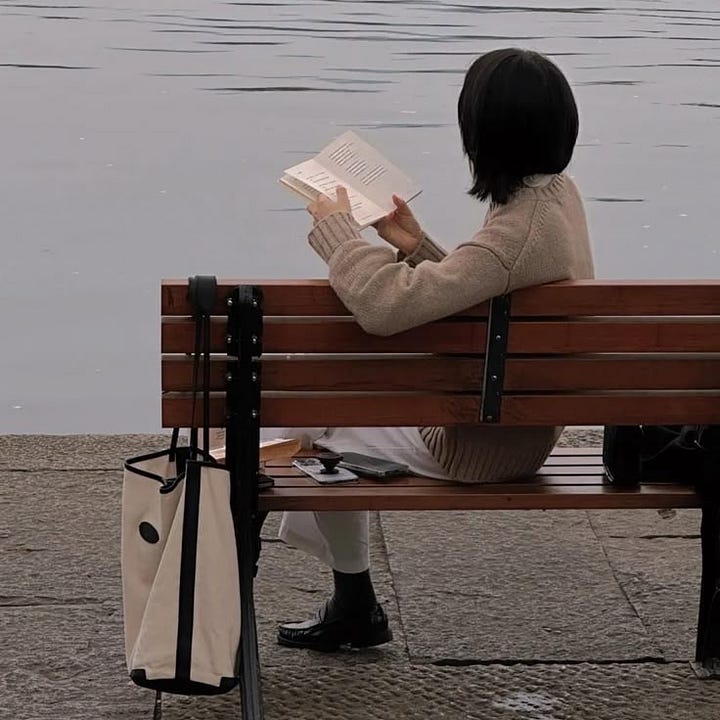

if we’re being honest, many of us didn’t choose this life. we adjusted to it. we shaped ourselves around what seemed acceptable and maybe picked the safest options and called it maturity. we told ourselves we were being realistic. we stopped asking what we loved and started asking what we could sustain. and somewhere in that process, something quiet got buried. a longing or some wildness or an original vision of what it meant to be alive.
i’m not saying the cottage isn’t real and i’m not saying you can’t want the lemon trees, the linen, the peace. what i’m saying is that we need to be careful not to confuse longing with dreaming. because a lot of what we call dreaming these days is actually just aestheticized version of burnout. it’s not a vision, but rather, an exit plan.
we love the idea of the cottage in the countryside. the quiet bakery. owning a slow bookstore with wooden shelves and dust in the corners and a bell that rings when the door opens. we love the farm stands and the hand thrown pottery and the seasonal routines that move with the sun. not necessarily because we’ve always dreamed of those things, but because they seem to promise something we’ve been missing.
the appeal isn’t always about the thing itself. it’s not about baking bread or owning chickens or waking up at dawn to water your garden. it’s about what those things symbolize. stillness. gentleness. room to breathe. a kind of life that doesn’t require you to be watched in order to matter. a life that belongs to you, fully and quietly, where no one expects you to be impressive. where you don’t have to monetize your joy or justify your pace. basically a life that lets you move through your day without constantly being extracted from.
i don’t think we’re actually dreaming of cottages. we’re dreaming of relief.
relief from the pressure to always be doing more and from the constant noise, the alerts, the metrics, the quiet performance of being okay. relief from the expectation that your life should always be building toward something. or that you should always be improving, producing, evolving. we fantasize about the countryside not because it’s the pinnacle of ambition, but because it looks like the opposite of everything that’s been draining us.
if the dream only exists as a reaction to your exhaustion, then it’s not a dream at all. and that doesn’t make it invalid, but it does mean we need to be honest about what’s actually happening.
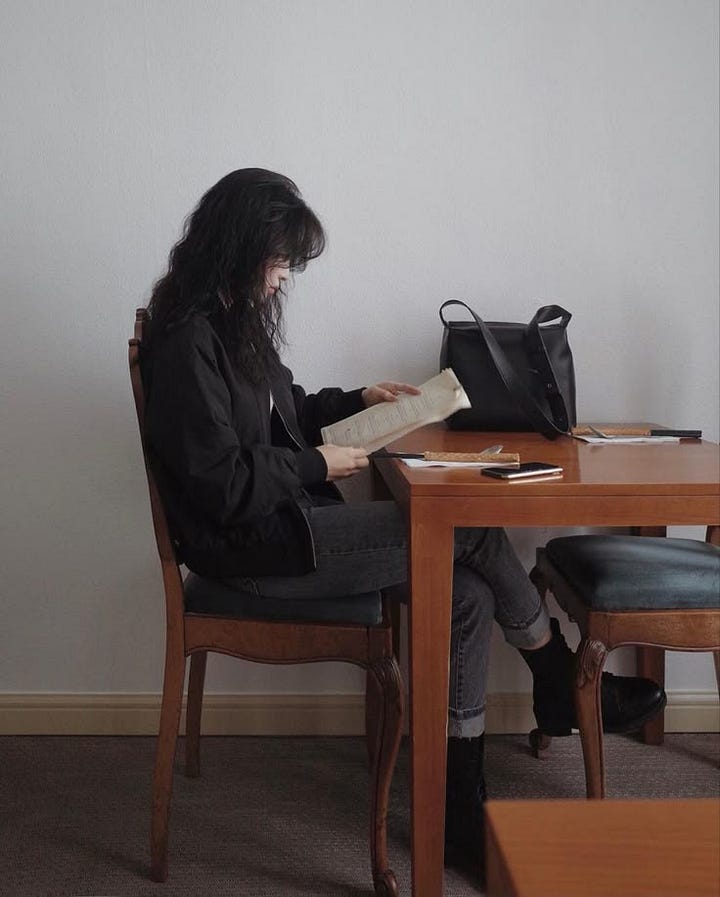
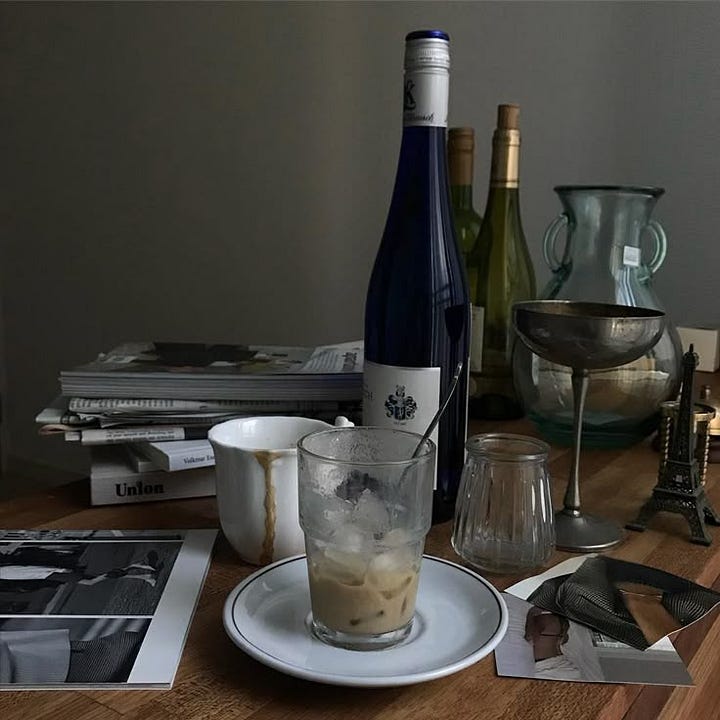
sometimes the dream is not a calling, but a cry for help.
the fantasy becomes another kind of escape, and escape, as comforting as it feels, isn’t the same as healing. escape is urgent and it’s desperate. it says, get me out of here. healing, on the other hand, asks harder questions. why do i feel the need to run. what am i running from. what part of me is starving. and what would it take to feed that part in the life i have now, without waiting for everything to change.
the truth is, you don’t need to live in the woods to need quiet. you don’t have to own a bookstore to want to be left alone. you don’t need to raise goats to crave a slower rhythm. these desires are not niche or aesthetic. they’re human. and you’re allowed to have them without turning them into a brand. you’re allowed to want softness without needing to justify it.
but you can’t build something real if it’s rooted only in reaction. you have to know what you’re moving toward, not just what you’re moving away from.
byung-chul han, in the burnout society, writes about how we’ve shifted from a disciplinary society to what he calls an achievement society. we used to live in a world shaped by external rules. visible authority figures told us what to do, what not to do, when to stop. the boundaries were clear, even when they were harsh. you knew when you were being controlled. there was someone telling you no.
now, it’s more subtle and more insidious. we tell ourselves yes. yes, i can take on more. yes, i can improve. yes, i can manage. yes, i can optimize myself into someone who deserves peace. we’ve internalized the demands and made them look like choices. we believe we’re free because no one is hovering over us, but we’ve absorbed the voice of authority so completely that we’ve become our own relentless supervisor.
this is what han means when he says the violence of the present is no longer disciplinary, but neuronal. it isn’t imposed through punishment. it’s generated through constant stimulation, through the pressure to always be available, always be producing, always be improving. and we don’t resist it. we buy better planners. we sign up for better systems. we track our sleep and our screen time and our feelings and call it growth.
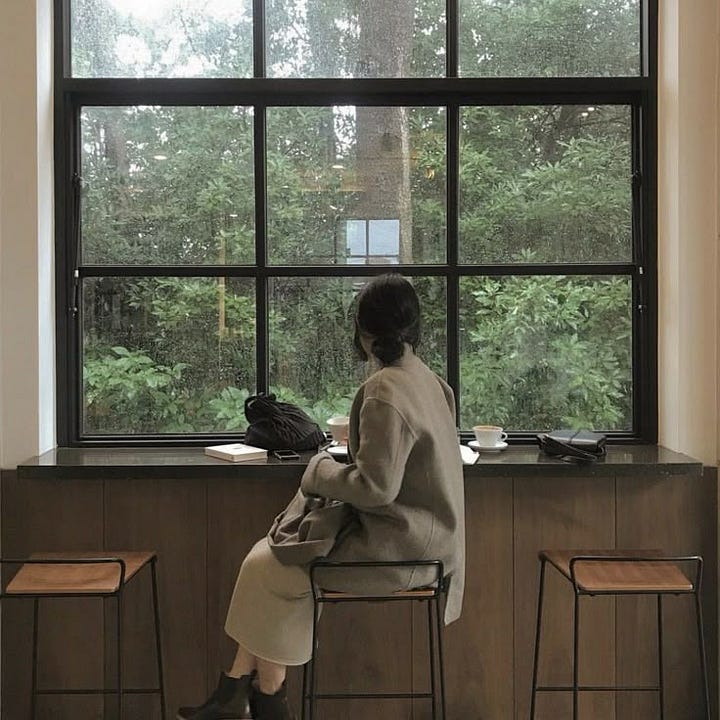
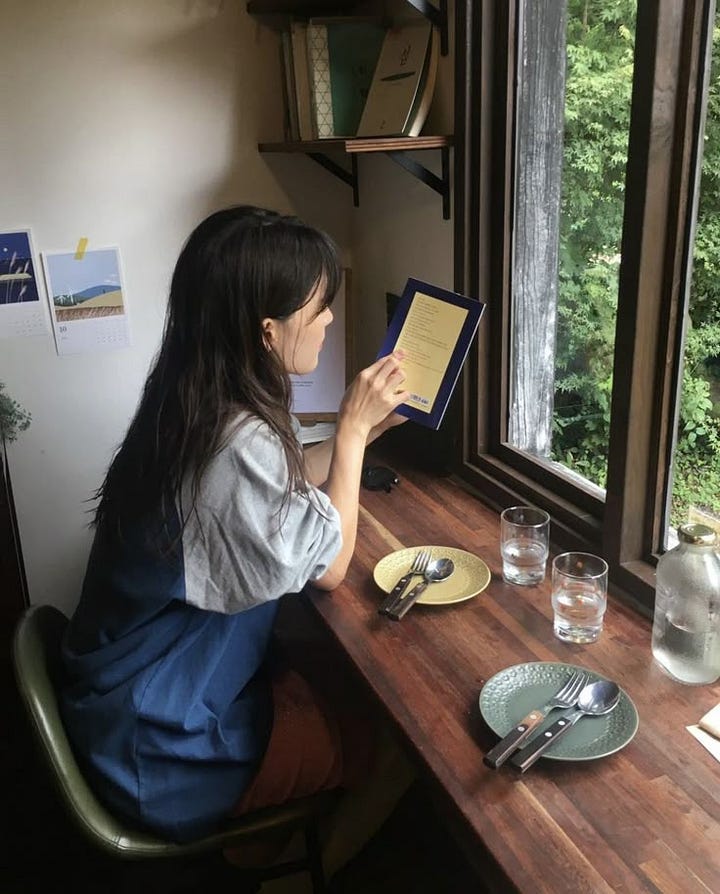
we call it self care, but so much of what we’re doing isn’t care at all. it’s maintenance and damage control. it’s trying to hold ourselves together long enough to get through another cycle of burnout. we’re not tending to ourselves, we’re managing ourselves like a brand or a business. we’re trying to make the life we ended up with feel livable, even if it’s never truly felt like home. and when it doesn’t feel good, we assume we’re the problem.
exhaustion isn’t a lack of strength, but a quiet kind of rebellion. your body pushing back against a system it can no longer endure. what if your dissatisfaction isn’t something to fix, but something to follow?
many of us have been trained to see unhappiness as a personal failure or a sign that we’ve done something wrong. so we respond with urgency. we try to fix it with products, with routines, with content.
so when you say you want to be happy, what is it that you’re really asking for?
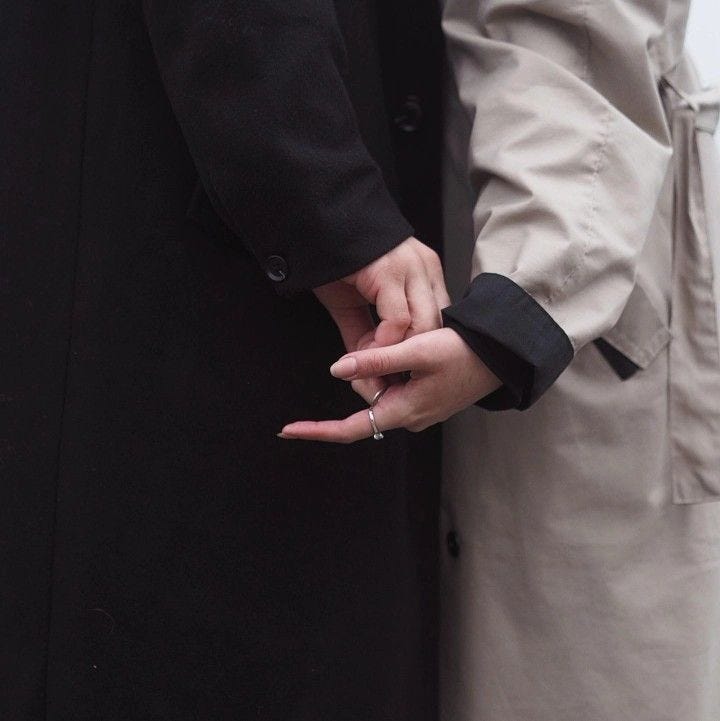
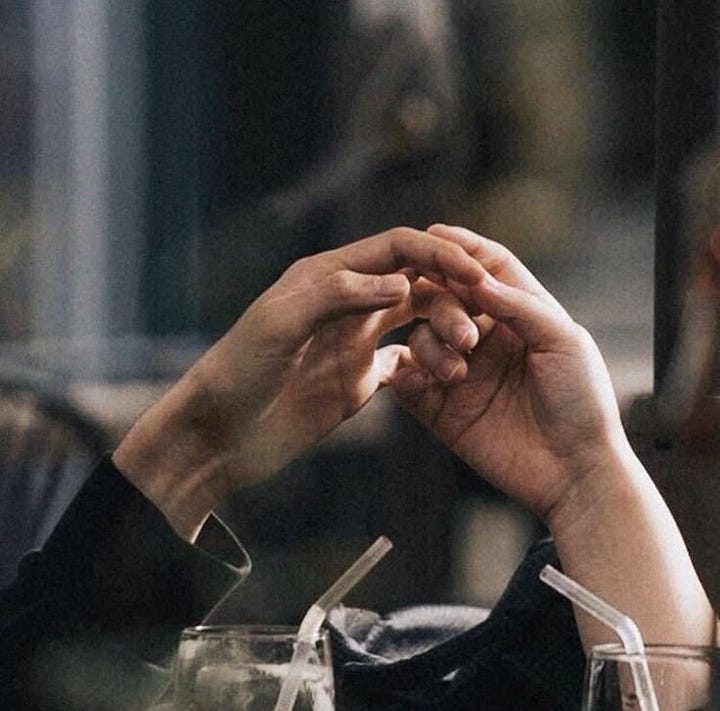
is it joy, or is it rest. is it peace, or simply a pause. do you want to feel alive in your own body, or just look like you're doing okay from the outside?
maybe the life you’re living simply doesn’t fit you, not because you’re failing at it, but because it was never built with your soul in mind.
and that’s the hardest part, isn’t it. most of us have never been shown how to imagine a life outside of the binary. we’re taught that we can either grind ourselves into the ground or fantasize about escape. it’s either total burnout or total withdrawal. no space for softness in between or a path that allows for both ambition and ease. no rhythm that lets you be sensitive and strong at the same time.
we’ve internalized the idea that peace must be earned. that happiness is a reward for being good, for staying busy, for holding it all together. we tell ourselves it’s coming. just not yet. not until the loan is paid off. not until the inbox is cleared. not until we’ve healed more, achieved more, become someone more deserving. we defer it. we say one day. one day, when the timing is better. one day, when we’ve fixed what’s wrong. one day, when everything finally feels under control.
but how long will you wait before realizing that your life is not a rehearsal?
how long will you postpone the thing you’re aching for, believing it lives somewhere far away, in another version of you?
you don’t need to abandon everything to begin again. the reset doesn’t require a dramatic reinvention. you can rebuild yourself in the quiet moments that already belong to you.
begin with your mornings with how gently you rise. or how slowly you move. with how softly you speak to yourself when you’re tired. it lives in the things you choose to say no to and the boundaries you learn to trust. the breath you take before rushing back into someone else’s urgency.
what if joy isn’t something you earn, but something you allow?
maybe the dream was never about the cottage. maybe it’s not about the lemon tree, the bakery, the countryside. maybe it’s about the way your body feels in the light or the moment you step into your kitchen and everything is quiet. maybe it’s the act of making something with your hands and offering it to someone you love without needing to prove anything.
the dream should be to move through the world without being observed where you belong to your life even when no one is watching and you can build something that feels like yours even if it doesn’t look impressive from the outside.
i think we’re chasing the kind of reality that feels intact. the kind that makes you feel human again. a dream of peace and presence
maybe the dream is you. honest, unguarded, and fully home.
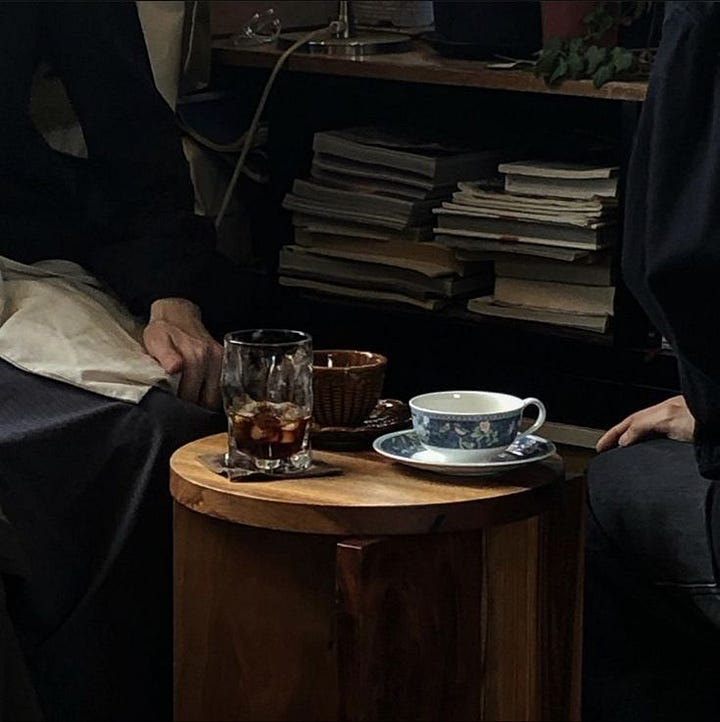
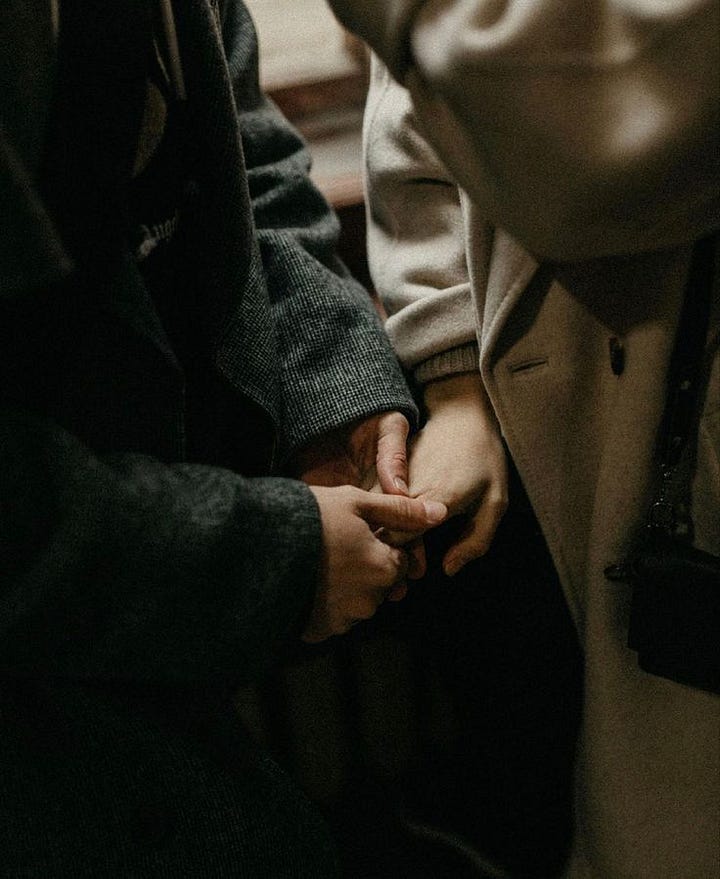
for when you're unraveling and want something that sees you
• the burnout society by byung-chul han
a short but razor-sharp diagnosis of our achievement-obsessed world, and what it’s doing to our minds and spirits.
• devotions by mary oliver
you don’t even need to read it all at once. just one poem, in the right moment, feels like a hand on your back.
• how to do nothing by jenny odell
a deeply intelligent meditation on presence, attention, and stepping away from systems of constant productivity. not a self-help book — more like a wake-up call written in soft focus.
• plainwater by anne carson
fragmented, genreless, and full of ache. this is what it feels like to question everything while still holding on to beauty. perfect for when you need poetry that doesn’t try too hard to be poetry.
• the lonely city by olivia laing
a tender, aching exploration of solitude, alienation, and the art that carries us through. part memoir, part cultural criticism, and strangely comforting in its honesty.
• your silence will not protect you by audre lorde
for strength that feels like truth rather than force. essays and poems that name the ache and demand more — of the world, and of yourself.
okay, that’s all for today.
if you’re not ready to become a paid subscriber and you have the capacity to leave a tip, that would be so appreciated.
i love you.
bye.
(follow ig, tiktok, youtube, pinterest and spotify for more)




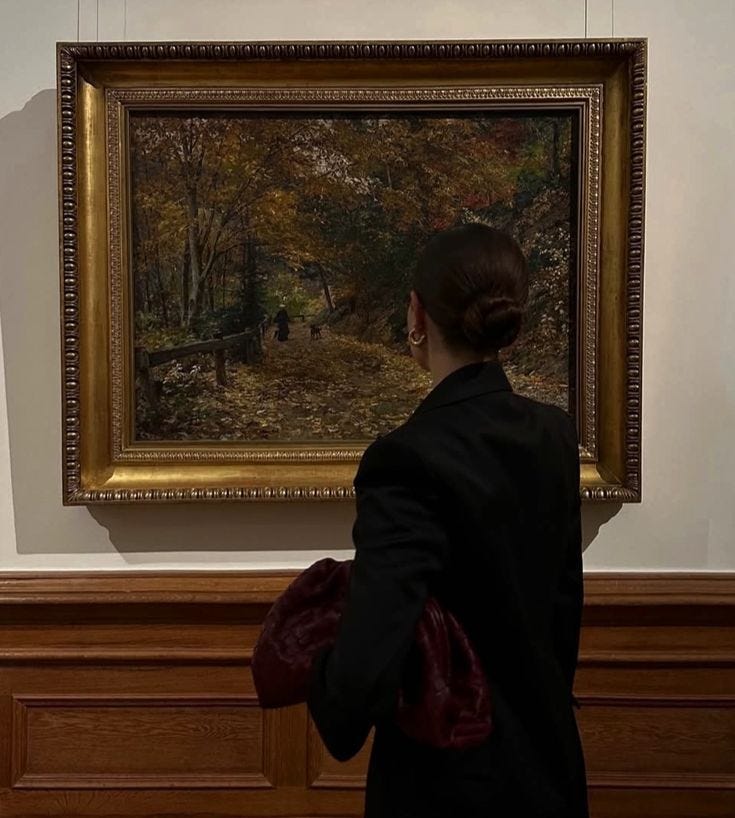
'if the dream only exists as a reaction to your exhaustion, then it’s not a dream at all' this is so beautiful. Dear Author, the way you write heals something in my soul I never knew to be broken. Thank you for writing the truth, amazing as always.
Scary how relevant this was for me today. Thank you for the reassurance in these words.